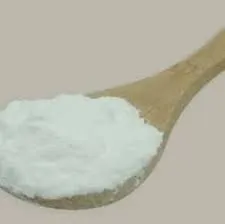anionic polyacrylamide uses
Anionic polyacrylamide (APAM) has been witnessing a surge in demand across various industries due to its unique attributes and versatile nature. As a seasoned professional in dealing with industrial chemicals, I can attest to the myriad of applications this compound offers, making it indispensable in enhancing operational efficiency.
Anionic polyacrylamide, a synthetic polymer, is predominantly employed for its flocculating properties. In the world of wastewater treatment, the necessity for an efficient and reliable flocculant cannot be overstated. APAM stands out by significantly improving the sedimentation process, aiding in the aggregation of suspended particles, and thereby facilitating their removal. Its effectiveness in clarifying turbid wastewater contributes to higher quality effluent, significantly benefiting municipal and industrial entities striving to meet stringent environmental regulations.
Furthermore, APAM's role extends to the mining industry, where it plays a crucial part in the thickening phase. Here, the polymer assists in the clarification of the extracted slurry, ensuring that the water content is minimized and valuable minerals are efficiently retrieved. This not only improves productivity but also supports sustainable practices by allowing for the recycling of water within the operations, minimizing the footprint on natural resources.
In agriculture, anionic polyacrylamide is gaining attention for its ability to minimize soil erosion. When applied to fields, it stabilizes the soil structure, reducing the detachment and transportation of soil particles under the impact of rain or irrigation. This application not only preserves topsoil integrity but also enhances water retention, benefitting crop yield. Additionally, its non-toxic property ensures that it poses no risk to crop health or soil quality, making it a sustainable choice for modern farming practices.
In the oil recovery domain, particularly in the enhanced oil recovery (EOR) processes, anionic polyacrylamide proves to be invaluable. It reduces the water-oil mobility ratio and improves oil sweep efficiency, leading to enhanced yields in mature oil fields. As oil companies strive to maximize output from existing sites, APAM serves as a reliable solution, driving up recovery rates while being economically favorable.anionic polyacrylamide uses
The paper manufacturing industry is another sector where the utility of anionic polyacrylamide is evident. In this context, it functions as a retention aid and improves the dewatering process. By enhancing the retention of fillers and fibers, APAM contributes to the production of quality paper with uniform textural properties, optimizing resource use and reducing production costs.
While the benefits of anionic polyacrylamide are substantial, it is crucial to use the right grade and molecular weight tailored to specific applications. Failure to do so may result in suboptimal results. Thus, consulting with experts who can provide insights on the appropriate formulations is advisable. This not only maximizes the performance of the polymer but also ensures that handling and application are carried out in the most efficient, safe manner possible.
As markets evolve, continuous research and technological advancements are ensuring that anionic polyacrylamide becomes even more robust and adaptable to new challenges. Companies engaging in environmental impact reduction, efficiency enhancement, and cost management are increasingly leaning towards APAM as a cornerstone material.
Trust in a reputable supplier who can provide consistent quality and technical support is indispensable. With rising demands, ensuring the authenticity and quality of the product is paramount. Adhering to global standards and regulations not only protects the environment but also upholds the credibility of businesses utilizing these polymers.
Embracing anionic polyacrylamide is not just about leveraging its functional benefits but also about aligning with sustainable practices and industry standards. Its multifaceted applications encourage industries to innovate and improve upon existing processes, leading to more sustainable and efficient operations. As such, industries worldwide are recognizing the indispensability of anionic polyacrylamide in their operations, paving the way for a future where industrial processes are cleaner, faster, and more reliable.
More product recommendations



